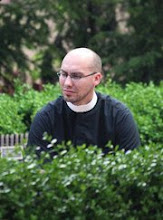Sanctification

One of the reasons that God’s “justification” is often misunderstood is that it is separated too widely from “sanctification.” The latter is also a term that many want to throw out as meaningless jargon, and the word has been further corrupted by the exaggerated piety of sanctimonious people, who pretend to a holiness that no one except Jesus could possibly live.
The greatest distortion of sanctification occurs when we start to think that we accomplish it ourselves – that we can fix ourselves, get rid of our tendency to sin, make ourselves more holy, attain perfection. Of course it is true that holiness is nourished by our participation in the practices of the faith, but it is GOD’S WORK through those practices that enable us more to act like the saints that we are by virtue of God’s justification of us. The same God who forgives our sins also sets us free from their controlling power.
Holiness is not abstract. IT is the story of God’s multifaceted interventions in the world.
Another, more subtle, corruption of sanctification arises when one’s piety is not rooted in the dialectical combination of truth and love. This can be seen in the warped “holiness” of those who insist on God’s commands as the basis for moral deliberations, but do so without love for their opponents. On the opposite side are those who emphasize love, but lose the truth of the Scriptures.
Jesus demonstrated true holiness when He said to the woman caught in adultery, “Neither do I condemn you. God your way, and from now on do not sin again” (John 8:11). He did not dismiss the actuality of sin (in which she might have been and unwilling participant), but forgives her in love and by grace sets her free for fresh obedience.
In the past I have thought about justification and sanctification primarily as a first and second step in God’s work for and in us. Now, I see them more as two sides of the same coin, which landed first on the justification side as Christ accomplished the sacrifice of atonement that forgives us. Thereafter, the coin keeps spinning as the two actions of God continually reinforce each other. We can’t be open to God’s renewing, sanctifying work within us if we don’t know clearly that we are forgiven, but when we fail and think, say, or do things contrary to God’s best way, the opulence of triune forgiveness widens us to receive more of God’s sanctifying work.
That is one of the reasons I love Sunday morning worship so much. Sometimes I have trouble forgiving myself and digging out of the guilt I feel because I’m not the kind and gracious person I’d like to be. Then, in worship, when I hear the pastor or priest announce to me the entire forgiveness of all my sin, it tastes so good that it makes me hungry for holiness. And the texts, sermon, music and liturgy, liturgical symbols and sacraments, and community keep teaching me about a God who wants to – and will! – work it in me. What a feast!
Dawn, Marva. Talking the Walk: Letting Christian Language Live Again (Grand Rapids: Brazos Press, 2005), 179-180.



